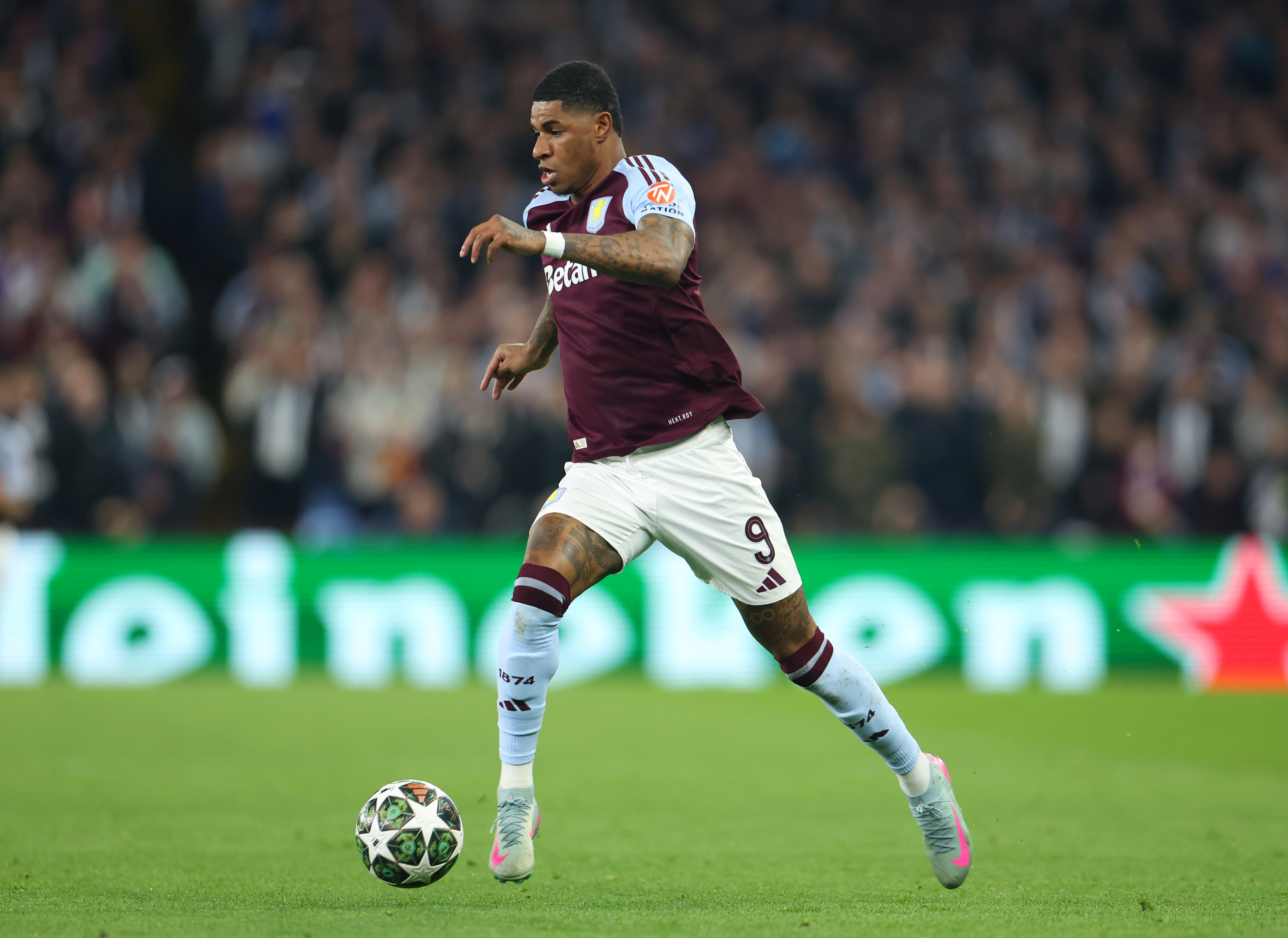How Pep has evolved since leaving Barça – and how his tactics could fare in England
If he joins the Premier League next season the Catalan faces a challenge like he's never had before, but would he sink or swim in such an unpredictable league? Thore Haugstad theorises...
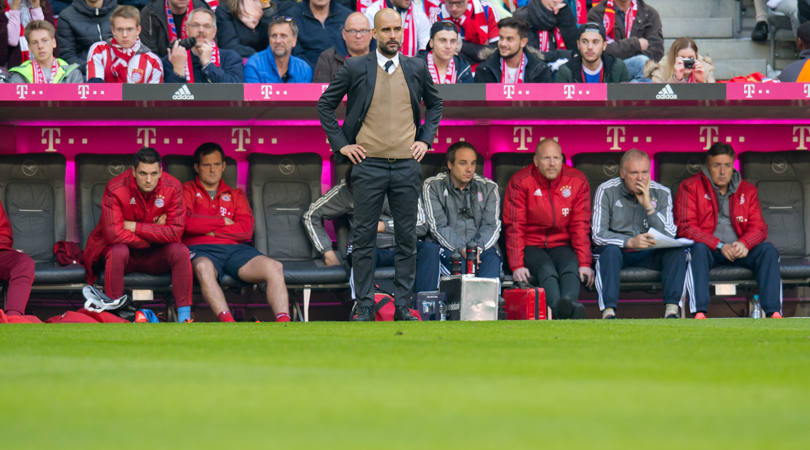
The last time Pep Guardiola switched jobs, sceptics debated the extent to which he would be able to transplant his ideas to another club. At Barcelona, his 4-3-3 had come close to tactical perfection through its coherent pressing, balanced movement and ability to accentuate the qualities of its stars. From 2008 to 2012, Barça’s opponents spent most of their time chasing the ball between intricate triangles of one-touch passes, as if permanently stuck in the middle of a rondo.
What helped Guardiola was an environment in which a clear club identity permeated everything, from the pitch to the dugout and the boardroom. So many members of the dressing room had received the same education, not least Guardiola himself, and those shared values fostered a harmony and understanding that helped him implement his ideas. The results were staggering, though Guardiola will have known how special that framework was. As Xavi said, during those four years, all the stars were aligned.
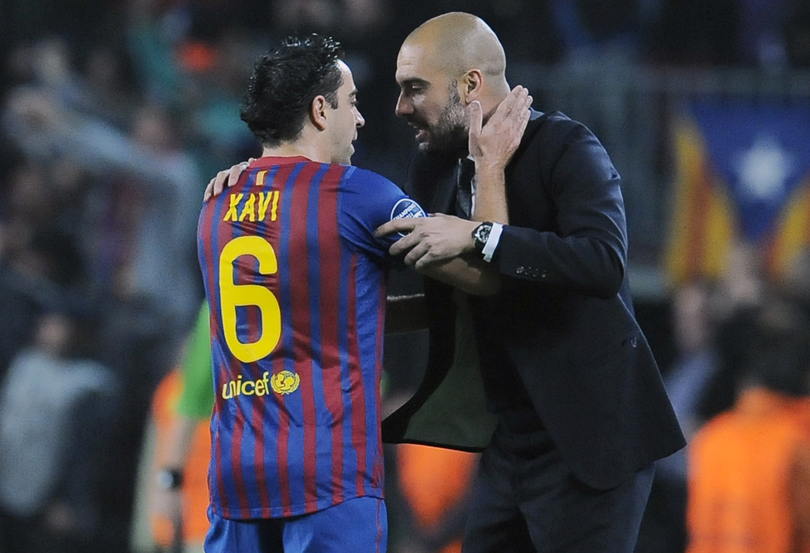
Three years after agreeing to take charge of Bayern Munich, Guardiola has proven to be more pragmatic than first assumed. The focus on possession remains – over the last five years, his sides have never averaged less than 65% in the league – but he has deployed a catalogue of radical formations, systems and roles. If some ever portrayed him as a coach that squeezes teams into an ideological straitjacket, that image has long been shattered.
Pep the chameleon
Guardiola has become braver in experimenting with the ideas he derives from other coaches and other sports, such as chess and basketball
Instead Guardiola has changed the ways in which he applies his core ideas. Early on at Bayern, he rehearsed attacks down the flanks to elevate Arjen Robben and Franck Ribery. Cutbacks were swapped for crosses to Mario Mandzukic, and later Robert Lewandowski. If short passes failed, Guardiola was happy to be direct: in the 2013/14 Bundesliga campaign, Bayern played the most long balls (81 per game); the following season, they played the fewest (67). Against Borussia Dortmund in 2013, Bayern bypassed Jürgen Klopp’s counter-pressing machine with occasional long passes. At Barça, that tactic would have bordered on sacrilege.
On another occasion last April, Bayern crushed Porto 6-1 having gone 5-0 up inside 40 minutes. The receipt was a strong focus on wide play and a series of crosses, as if Guardiola had been on the phone to Sam Allardyce.
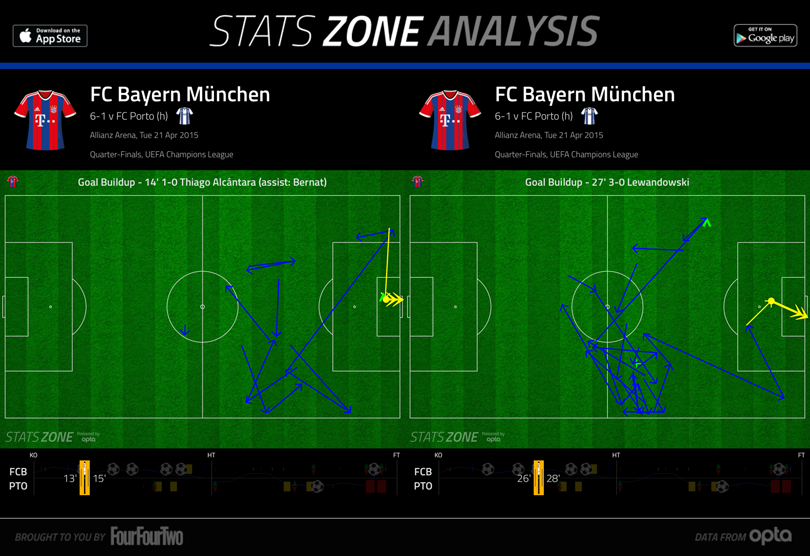
Guardiola has also become braver in experimenting with the ideas he derives from other coaches and other sports, such as chess and basketball. The variety of his tactics puts him on another planet in the galaxy of elite coaches; so sophisticated is his thinking that concepts take months and even years to teach. Systems vary from game to game, from minute to minute. Last season Bayern lined up in 10 different formations: 4-3-3, 4-2-3-1, 4-1-4-1, 4-1-3-2, 4-1-2-1-2, 3-4-3, 3-4-2-1, 3-5-2, 3-1-4-2 and a 3-4-3 diamond. In August they beat Bayer Leverkusen 3-0 without a recognised centre-back. Only last week, they faced Hannover in a 3-1-4-2.
Get FourFourTwo Newsletter
The best features, fun and footballing quizzes, straight to your inbox every week.
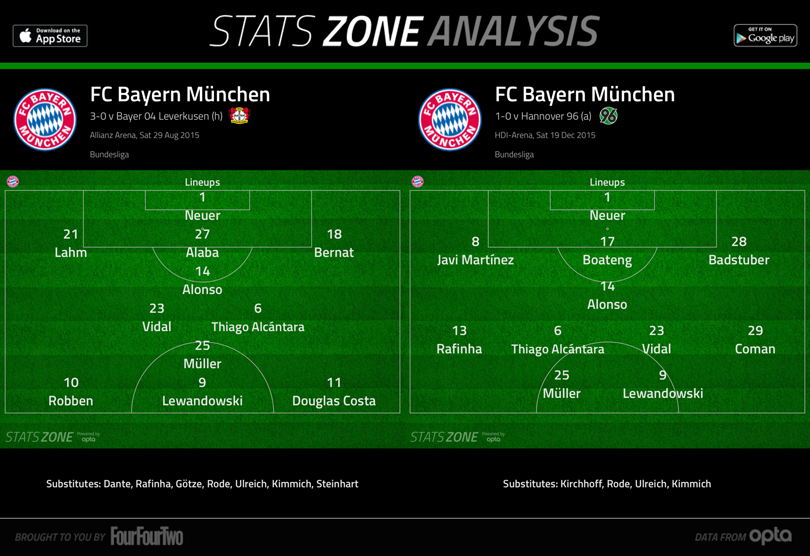
Strange roles have surfaced. In April 2014, against Manchester United, Guardiola played Philipp Lahm and David Alaba as ‘inverted full-backs’ that drifted inside to dominate the centre of the pitch in possession.
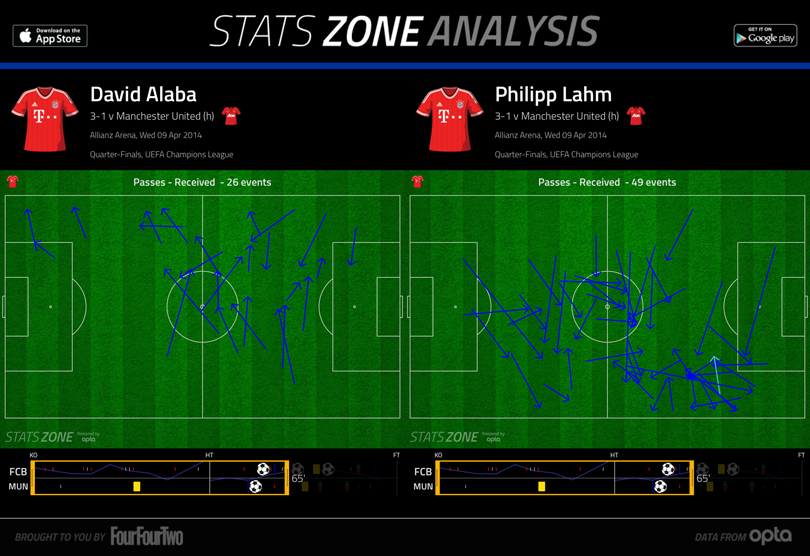
Earlier this season, Alaba was given a left-back role in which he also acted as a left winger and an attacking midfield playmaker: three functions in one. The Austrian worked the whole flank, and duly smacked home a screamer from outside the box.
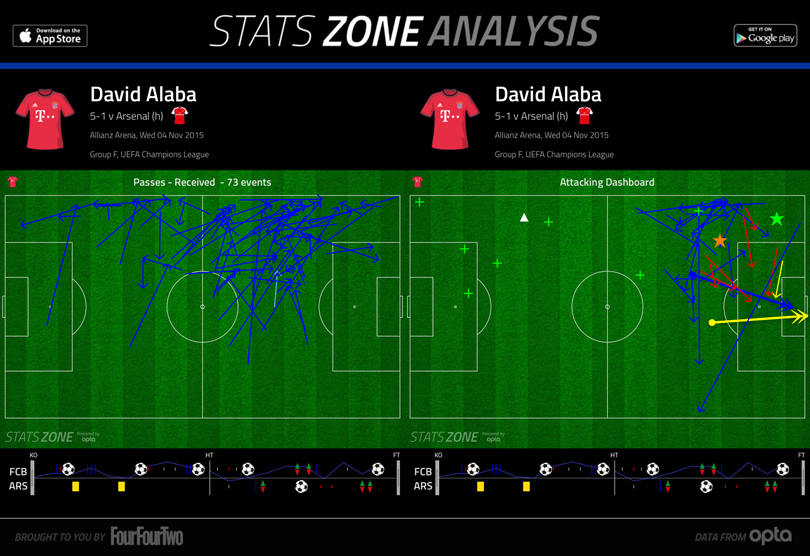
Breaking down the wall
The influence of his ideas may no longer be as profound, but his flexible nature will be refreshing in a league where most stick to 4-2-3-1
This evolution considered, Guardiola seems better prepared for life in England than three years ago. The focus on possession is not negotiable, but his array of solutions is unrivalled. Given how his Barça side inspired so many coaches, the influence of his ideas may no longer be as profound, but his flexible nature will be refreshing in a league where most stick to 4-2-3-1. Direct opponents will test his defensive organisation, but adversity will never compromise his beliefs.
One issue that might arise is the scenario that has plagued Louis van Gaal, in which patient positional play fails to break down compact defences. A possession-based style generally gives opponents time to organise and often relies on either individual quality or exceptional sharpness and precision to convert dominance into chances. The alternative outcome is to keep hitting your head into a robust defensive wall.

This rarely occurred at Barça, because Guardiola is such a master at hatching gameplans in which tiny weaknesses are exploited. Besides, he had Lionel Messi, the ultimate player for working magic in small spaces in the final third (and indeed most other things). But the style of the opposition was also crucial. Most La Liga sides are set up to play good football and are less predisposed to the kind of backs-to-the-wall defending required to fell Barça. Over the years, few if any teams have beaten Guardiola by being the more proactive side.
The Moyes template
In Bayern’s 1-1 draw at Old Trafford in April 2014, the Bavarians had 74% possession and completed 702 passes but created a disappointing number of chances
Instead the two teams that eliminated his Barça from the Champions League were Jose Mourinho’s Inter and Roberto Di Matteo’s Chelsea. Both held out at the Camp Nou through ultra-defensive tactics. This is key, because English sides are traditionally better at this kind of scrappy defending than Spanish and perhaps even German sides.
Guardiola has played 20 games against Premier League opponents, winning nine and losing five. That is decent, though still below par for a coach of his calibre. The away record says two wins in nine.
An example of a feared outcome took place in Bayern’s 1-1 draw at Old Trafford in April 2014. The Bavarians had 74% possession and completed 702 passes, but created a disappointing number of chances. The rival was David Moyes, a classic example of a reactive Premier League manager who can frustrate this kind of opponent. Not coincidentally, the highlight for Moyes at Real Sociedad would prove to be a gritty 1-0 over Barça.
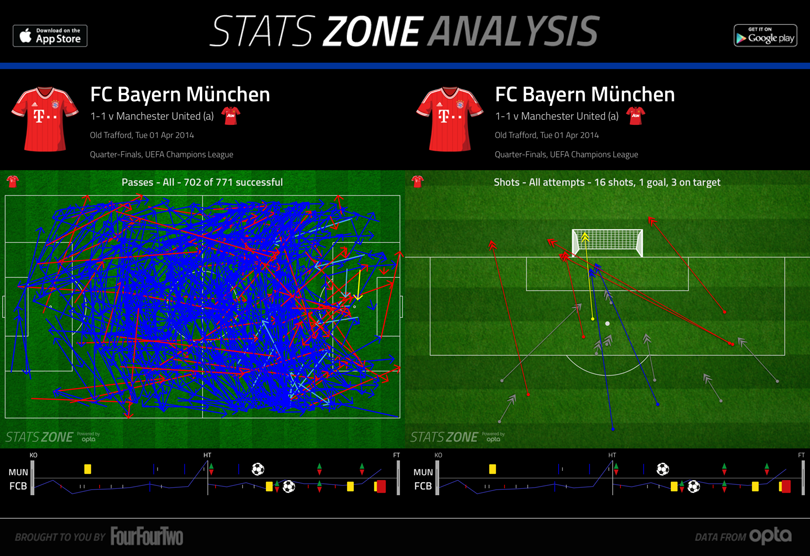
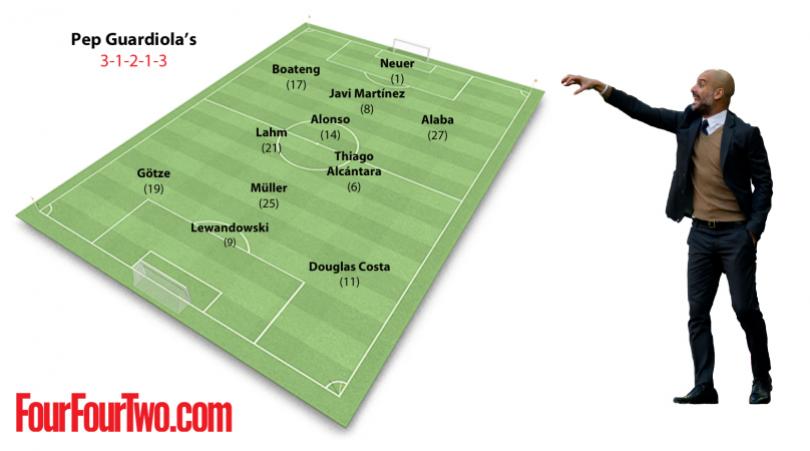
For all this, however, Guardiola remains the most sophisticated operator around and his ability to overcome such scenarios far eclipses that of Van Gaal. His style of play also tends to be more direct and aggressive than some might think. Should his move to England materialise, it would take a brave man to bet against him.
MORE PEP ON FFT.COM
